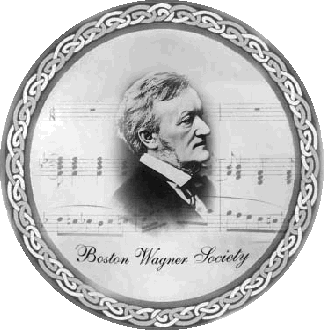Karl Wee: “The Eos’s Abridged Valkyrie”
The Valkyrie, Eos Orchestra, March 20, 2006, Skirball Hall, New York University, orchestrated by Jonathan Dove, conducted by Jonathan Sheffer, stage direction by Christopher Alden
Sanford Sylvan, Wotan
Meryl Richardson, Brünnhilde
Michal Shamir, Sieglinde
Charles Hens, Siegmund
Linda Pavelka, Fricka
Ethan Herschenfeld, Hunding
The Valkyrie is the second installment of the New-York-based Eos Orchestra's miniaturization of Wagner's Ring, in which the Ring is made both shorter and smaller. The five-plus hours of Die Walküre, for example, have been condensed to fewer than three, and the 100 pieces of the orchestra were reduced to 18. Originally made for Britain's City of Birmingham Touring Opera in the early 1990s, this English-language adaptation was orchestrated by Jonathan Dove, with stage direction by Christopher Alden.
The good news is that lovers of Wagner's music will not be disappointed. The essence of Wagner's wonderful harmony and the multi-dimensionality of his music come gloriously through the much downsized orchestra. Not only that, but one of the great joys of hearing the Ring live, the ability to be pleasantly surprised by interesting little things not easily accessible through a stereo system, is still there. I found myself wishing for a bigger orchestra at only two moments of extraordinary power and complexity: part of the “question and answer” portion of the “annunciation of death” scene and “Brünnhilde's compassion” motive (and the passage immediately after) in the farewell scene. Overall, somehow, Jonathan Dove convinces you that you don't really need all those extra instruments.
Of course, it helped that I was sitting in the second row. The house was almost full in the college auditorium, and I can't safely say how well the sound traveled. Jonathan Sheffer's conducting was lively but transparent. It did impose some degree of interpretation, but not detrimentally, and at this scale, no part was capable of overwhelming another part anyway. The orchestra put in a fine effort, not without very occasional errors, but not in a way anyone would mind. Somehow, the 18 instrumentalists gave the impression of easily fulfilling the requirements for power as they arose. The multipiece brass section, especially, was most memorable in showcasing Wagner's harmonic writing.
So, if that's the good news, the “other” news is that the drama and staging didn't really work for me. I went into this performance with a fully open mind, willing to give the director every subjective benefit. Contrary to the impression given in a New York Times review I had read, the plot is not independent but basically the same as the Ring. Personally, I don't see how the story of the Ring, with its swords, horses, and spears, can be made to work convincingly with a modern set. In this production, we have to make believe that a family dressed in the garb of the modern middle class sitting around the kitchen, complete with schoolgirl uniforms for the daughters and pajamas for Wotan are gods ruling the world. The fighting scene between Siegmund and Hunding, with four people sitting around a table as if playing bridge and one of them suddenly dropping dead, is not very convincing.
Another, perhaps more serious, problem is that key scenes left me feeling cold. These include Siegmund's drawing of the sword from the tree and Wotan kissing Brünnhilde to take her godhead away, both to beautiful music, of course. In the former, the moment of sword drawing is replaced by a sexual climax with Sieglinde's legs wrapped around Siegmund's body. In the latter, the kissing becomes an attempt at incest, which is then repelled by a shocked Brünnhilde. Also, Nothung is planted by Wotan not for a divine purpose but in anger and frustration. I'm not against the changes to Wagner's drama, but they seem purposeless, even contradictory, when the rest of the drama and the music are left essentially intact.
If one of the goals of this production is to cut the Ring down to a modern, digestible size, it was sadly apparent that this too was not going to be successful. By failing to change Wagner's plot in any significant way, it allows the full complexity of the story to come out in Wotan's monologue, and much of the dialog must have seemed to come out of nowhere for novices.
The cast put in a great effort. The acting and singing were both excellent, with the possible exception of Siegmund's acting. (Somehow his love for Sieglinde was not convincing.) This was a truly wonderful effort by the orchestrator, the conductor, the players, and the actors. Even the English-language adaptation of the libretto was fine, though it gave no hints to the controversial bits of the action. Sadly, all had to live under a shadow cast by the staging.
–Karl Wee
